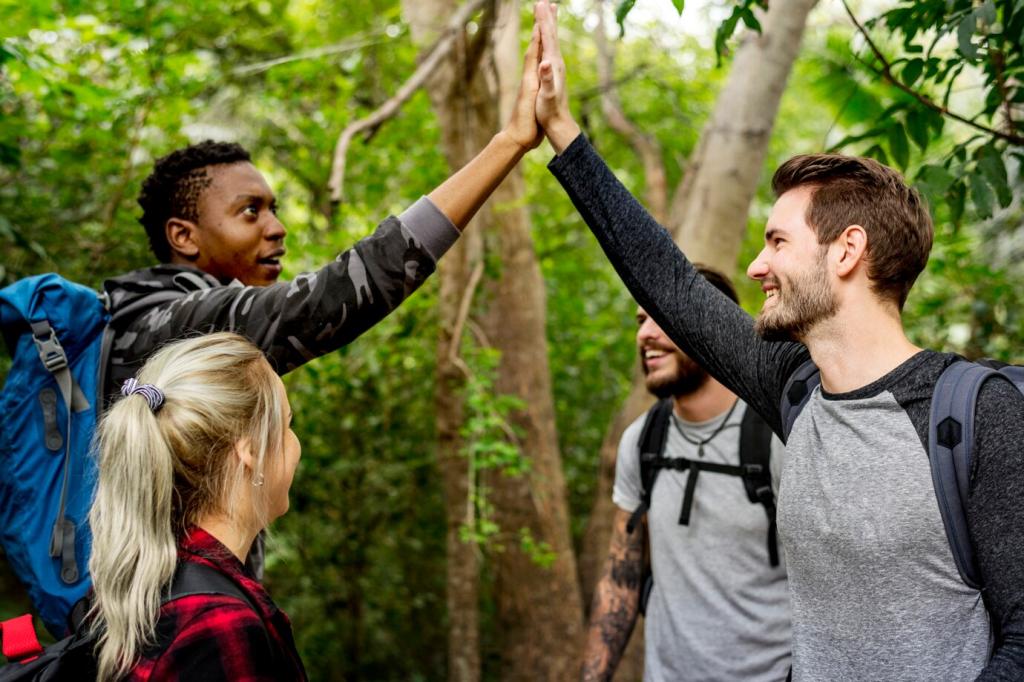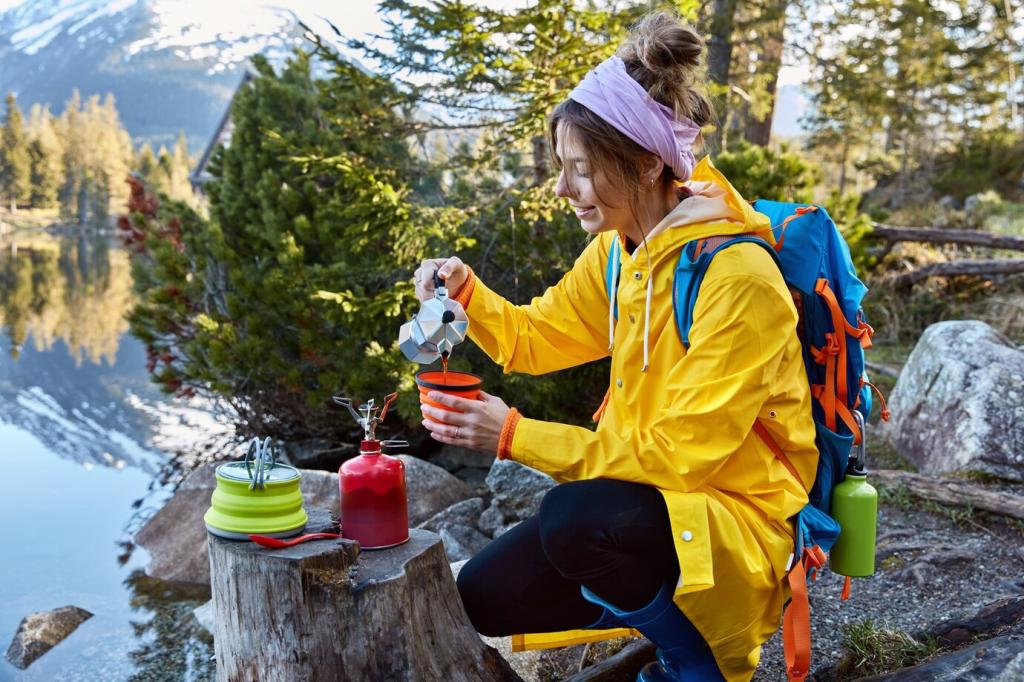Sustainable Travel Tips: Journey Lightly, Live Deeply
Chosen theme: Sustainable Travel Tips. Welcome to a kinder way of exploring the world—thoughtful choices, heartfelt stories, and practical steps that help you leave places better than you found them.
Plan With Purpose: Low-Impact Itineraries
Visiting during shoulder seasons eases pressure on local infrastructure, spreads income more evenly, and often rewards you with calmer streets and warmer conversations. Share your favorite off-peak discoveries, and tell us how different the experience felt compared to high season.



Pack Light, Waste Less
Carry a compact set: bottle with filter, mug, utensil set, cloth napkin, and foldable tote. You will skip countless single-use items without any sacrifice. Share your must-have reusable and the one time it saved your day on the road.
Pack Light, Waste Less
Opt for sturdy luggage, sew-on button shirts, and multi-use layers that handle many climates. A small repair kit beats last-minute purchases. I once patched a jacket mid-trek, avoided waste, and kept hiking in comfort. What’s your best field repair tip?
Move Mindfully at Your Destination
Master Local Transit
Download offline maps, buy day passes, and learn a few transit phrases. I once asked a tram driver for tips and ended up with a neighborhood bakery recommendation. Share a transit hack or app that made navigating a new city effortless.
Walk and Cycle for Discovery
On foot or bike, you notice micro-moments: a courtyard garden, a mural, a street musician’s melody. Rent from community programs and follow local safety norms. Comment with your most memorable walk or ride that led to an unexpected find.
When Cars Are Necessary, Choose Better
If you must drive, consider car-sharing, electric options, or efficient vehicles. Combine errands and carpool when possible. Ask hosts for the most eco-friendly local providers. Which destinations have impressed you with accessible low-impact transport options?
Eat for the Planet and the Place
Go Plant-Forward and Seasonal
Local, seasonal produce often carries a smaller footprint and a bigger story. Farmers’ markets reveal what the land offers right now. Share your favorite plant-forward dish discovered on a trip and where others can taste it too.
Ditch Single-Use Plastics When Dining
Bring your bottle and cup, ask for no straws, and choose sit-down spots that use real plates. Refill at vetted stations or use a travel filter. Tell us how you handle hydration safely and sustainably in new places.
Support Small, Community-Owned Eateries
Avoid tourist traps and follow locals to family-run kitchens. Once, a cook in a coastal village taught me to order the day’s catch by asking about the wind. Recommend a community spot where every bite felt like a conversation.
Choose Certified or Transparent Stays
Look for clear sustainability practices—renewable energy, water-saving fixtures, and waste reduction. Certifications like credible eco-labels can help. Comment with a hotel or guesthouse that impressed you with open, measurable sustainability efforts.
Adopt Energy-Smart Habits
Turn off lights, set moderate temperatures, and reuse towels. Small actions add up, especially in regions with stressed grids. Share one simple habit that you consistently practice to make your room more energy efficient.
Consider Homestays and Agritourism
Staying with local hosts can distribute tourism benefits and deepen connection. I once harvested olives before breakfast and learned about water stewardship firsthand. Tell us about a memorable stay that changed how you think about place.

Practice Leave No Trace
Stick to marked trails, pack out waste, and tread softly. Even one shortcut can scar a hillside for years. Share a moment when you helped another traveler make a better choice outdoors—guidance spreads quickly.

Be Wildlife Wise
Skip attractions that exploit animals and keep respectful distances. Binoculars beat baiting every time. I once waited quietly to see dolphins from shore; patience turned into magic. What ethical wildlife encounter moved you most?
Measure, Reduce, and Share
Track and Cut Emissions First
Use reputable calculators to estimate transport and lodging impacts, then reduce where possible—fewer flights, lighter bags, slower routes. Offsets can complement, not replace, real cuts. What reduction goal will you set for your next trip?
Support Community and Conservation
Donate to verified local projects or volunteer skillfully with organizations that request specific expertise and timeframes. Avoid feel-good quick fixes. Share a project you trust and why it aligns with sustainable travel values.
Tell Your Story to Spark Change
Post practical tips, honest challenges, and wins—from the reusable kit that worked to the bus route you loved. Invite friends to try one change. Subscribe for weekly Sustainable Travel Tips, and add your best advice in the comments today.
